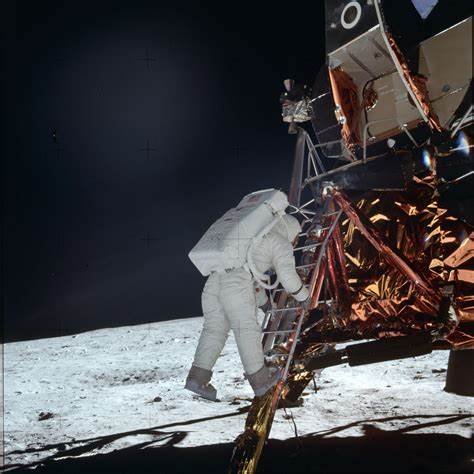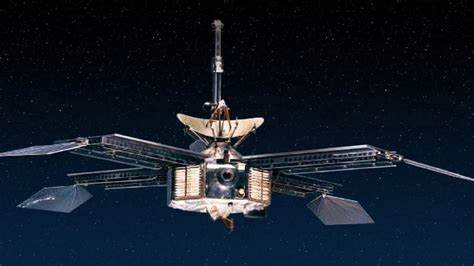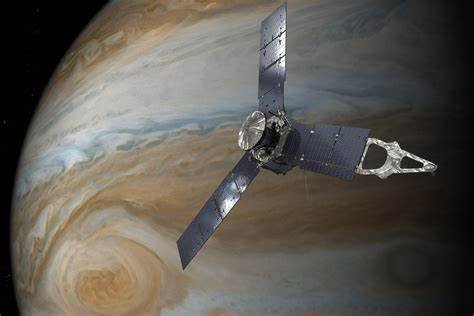Space exploration is the quest to discover and understand the mysteries of the cosmos. Humans have always been fascinated by the stars and planets, and have dreamed of traveling beyond Earth. Here are some of the achievements and milestones in humanity's exploration of outer space.
- The first artificial Earth satellite, Sputnik 1, was launched by the Soviet Union on October 4, 1957. It orbited the Earth for three weeks, sending radio signals that could be heard around the world. Sputnik 1 sparked the space race between the Soviet Union and the United States, and ushered in a new era of scientific and technological advancement.
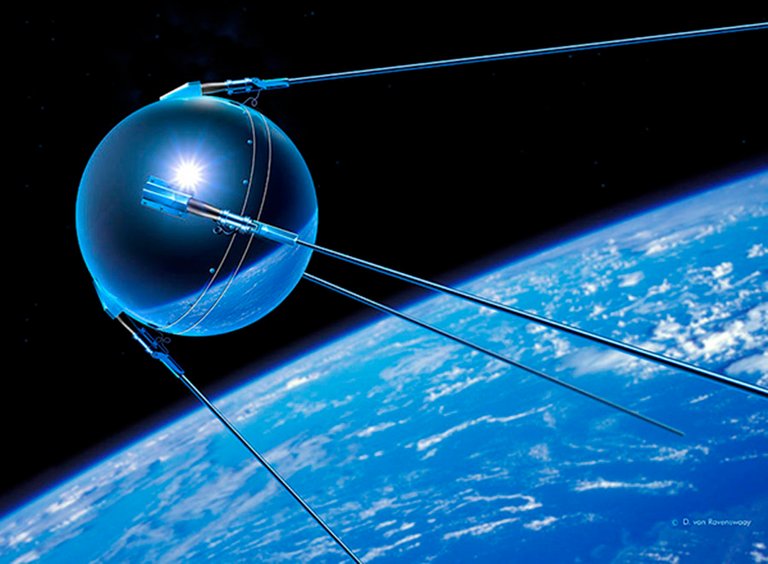
- The first human to go into space, Yuri Gagarin, was launched, again by the Soviet Union, for a one-orbit journey around Earth on April 12, 1961. He spent 108 minutes in space, becoming the first person to see the Earth from above. His flight inspired millions of people and demonstrated that humans could survive in space.
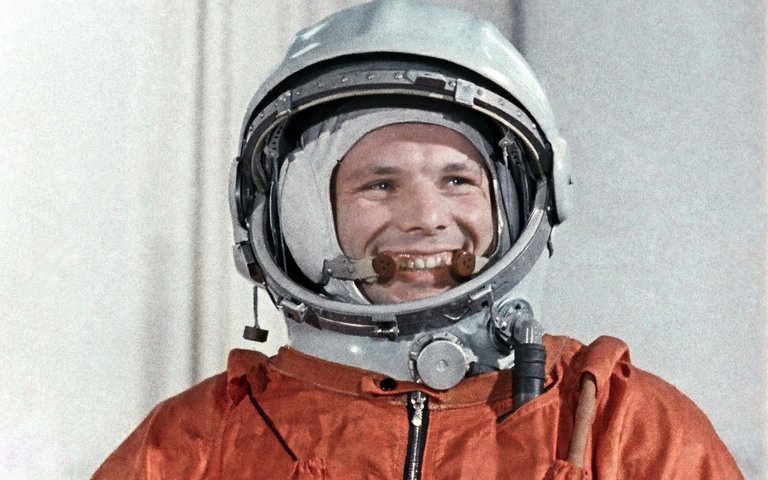
- The first humans to land on the Moon, Neil Armstrong and Edwin ("Buzz") Aldrin, were part of the Apollo 11 mission by the United States on July 20, 1969. They spent about two hours on the lunar surface, collecting rocks and planting a flag. Armstrong's famous words, "That's one small step for [a] man, one giant leap for mankind", captured the significance of this historic achievement.
- The first data returned from another planet, Venus, was sent by Mariner 2, a probe launched by the United States on August 27, 1962. It flew past Venus on December 14, 1962, measuring its temperature, magnetic field, and solar wind. Mariner 2 was the first successful interplanetary mission and opened the door for further exploration of our solar system.
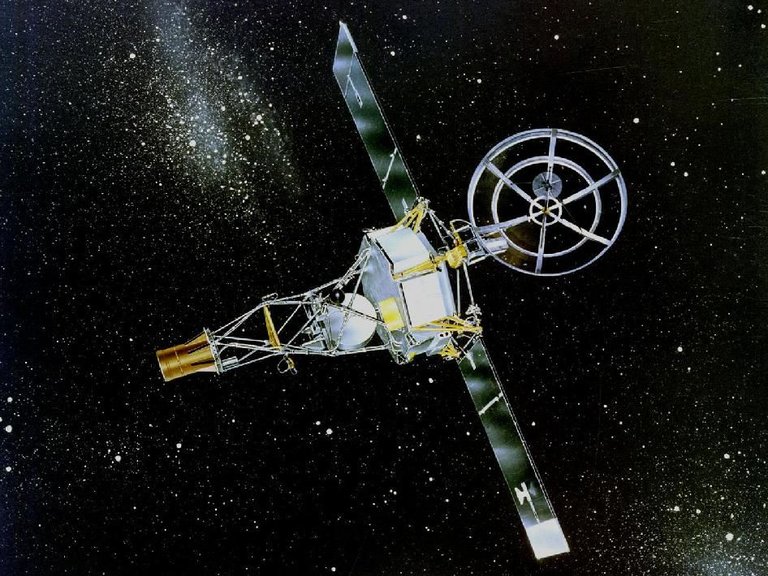
- The first spacecraft pictures of Mars were taken by Mariner 4, another probe launched by the United States on November 28, 1964. It flew past Mars on July 14, 1965, sending back 22 images of its surface. The images revealed a barren and cratered world, contrary to some expectations of a more Earth-like planet. Mariner 4 also measured the atmospheric pressure and radiation environment of Mars.
Space exploration continues to this day, with more ambitious and diverse missions to study our own planet, the Sun, the Moon, asteroids, comets, and other planets and their moons. Some of the current and future missions include:
- The Hubble Space Telescope , launched in 1990 by NASA and ESA , is an orbiting observatory that has revolutionized astronomy with its stunning images and discoveries of distant galaxies , stars , planets , and more . Hubble is still operating and has been upgraded several times .

- The International Space Station , launched in 1998 by NASA , Roscosmos , ESA , JAXA , and CSA , is a modular space station that serves as a laboratory , observatory , and factory in low Earth orbit . It hosts crews of astronauts and cosmonauts from various countries who conduct scientific experiments , test new technologies , and perform maintenance tasks . The ISS is also a platform for launching and docking other spacecraft .
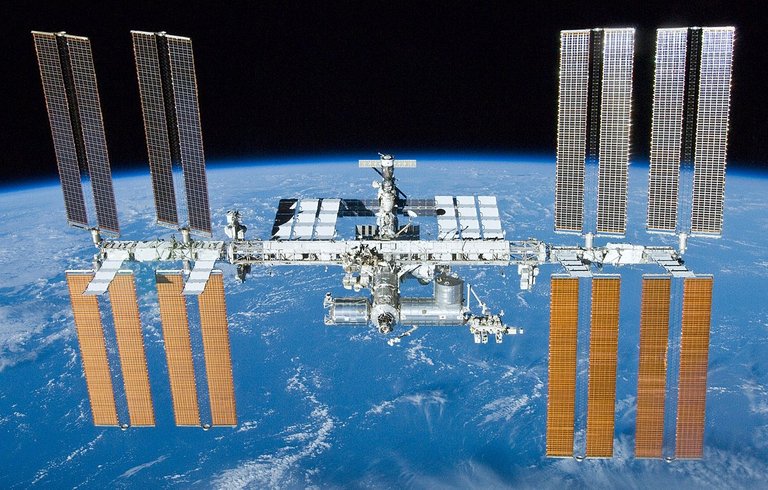
- The Juno spacecraft , launched in 2011 by NASA , is a probe that orbits Jupiter and studies its structure , atmosphere , magnetosphere , and moons . It aims to reveal the origin and evolution of the giant planet and its role in the solar system . Juno has sent back stunning images and data of Jupiter's clouds , storms , auroras , and rings .
- The James Webb Space Telescope , planned to be launched in 2021 by NASA , ESA , and CSA , is a successor to the Hubble Space Telescope . It is a large infrared telescope that will observe the earliest stars and galaxies , the formation of planetary systems , and the atmospheres of exoplanets . It will also support missions to the Moon and Mars .

- The Artemis program , planned to start in 2021 by NASA and international partners , is a series of missions to return humans to the Moon and establish a sustainable presence there . It will also prepare for future human exploration of Mars . The program will use the Orion spacecraft , the Space Launch System rocket , and the Gateway lunar outpost . The first woman and the next man are expected to land on the Moon by 2024 .
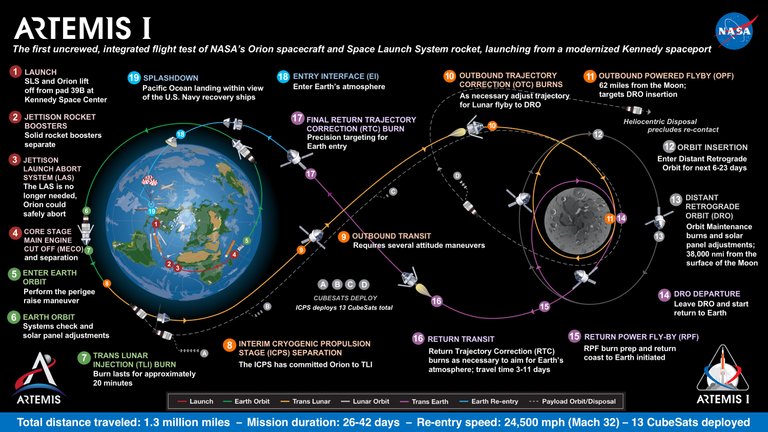
Space exploration is not only a scientific endeavor, but also a cultural, political, and economic one. It reflects our curiosity, creativity, and cooperation as a species. It also challenges us to overcome our limitations, risks, and ethical dilemmas. As we venture further into space, we may discover new wonders, dangers, and opportunities. We may also learn more about ourselves and our place in the universe.
